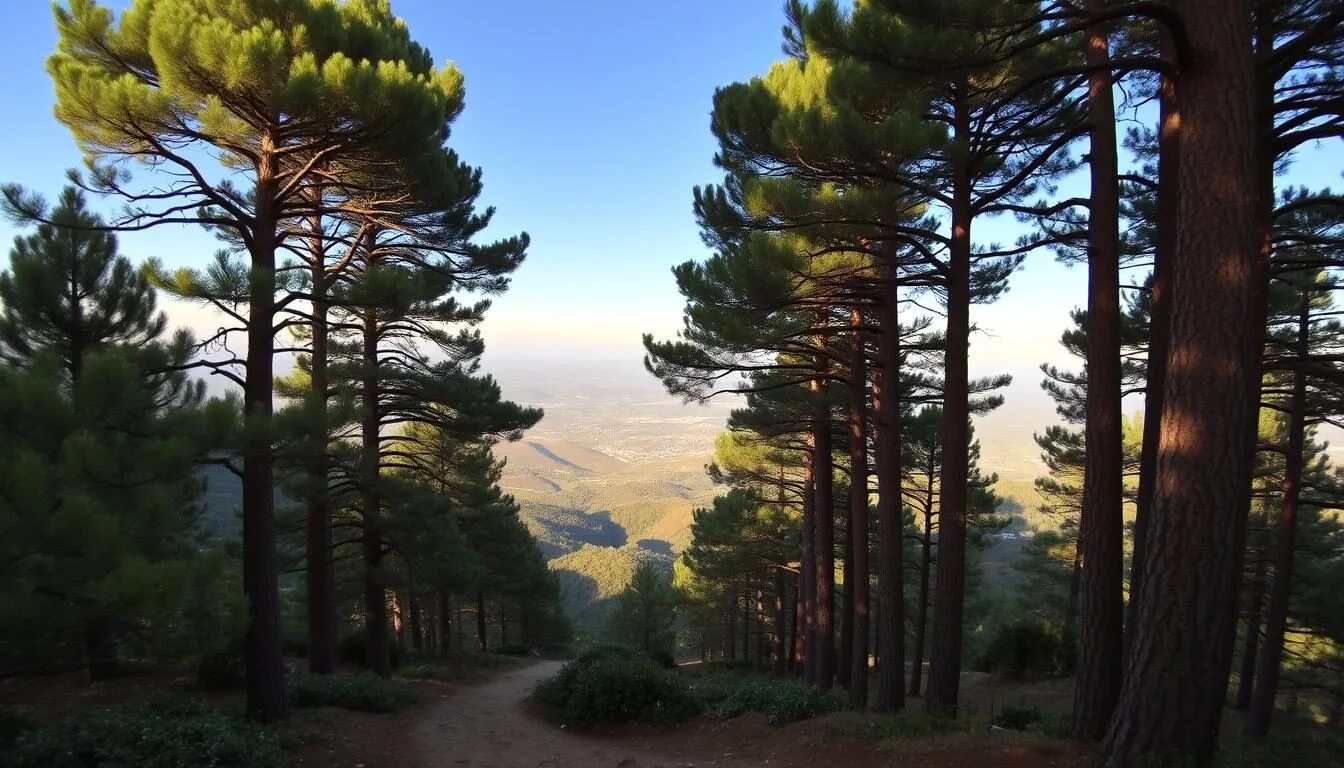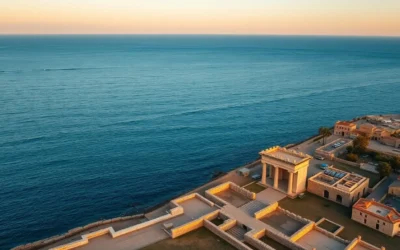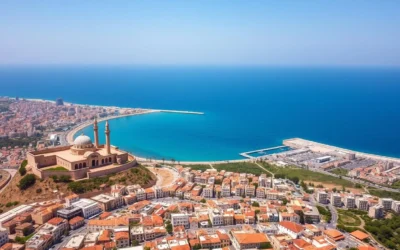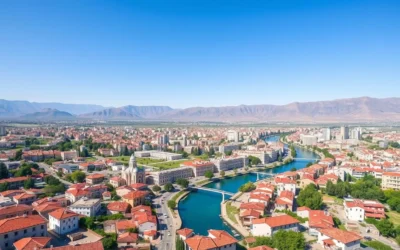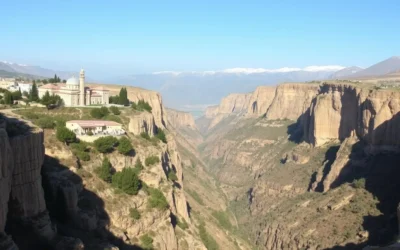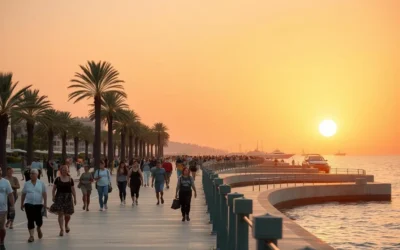You are about to explore one of Lebanon’s most treasured natural gems – a place where history, culture, and nature converge in perfect harmony. The Al Shouf Cedar Nature Reserve is not just a haven for the iconic cedar trees; it’s a testament to Lebanon’s rich natural heritage.
Established in 1996, this reserve is a sanctuary for the endangered cedar tree species, specifically the Cedrus libani, a symbol of Lebanon’s resilience. Spanning from Dahr al-Baidar to Niha, it encompasses three magnificent cedar forests, representing a significant portion of Lebanon’s remaining cedar trees.
As you delve into the wonders of this UNESCO Biosphere Reserve, you’ll uncover the top experiences that make it a must-visit destination for nature enthusiasts and history buffs alike.
Discovering Lebanon’s Natural Treasure
Nestled in the heart of Lebanon, the Al Shouf Cedar Nature Reserve is a natural treasure that offers a unique blend of ecological and cultural significance.
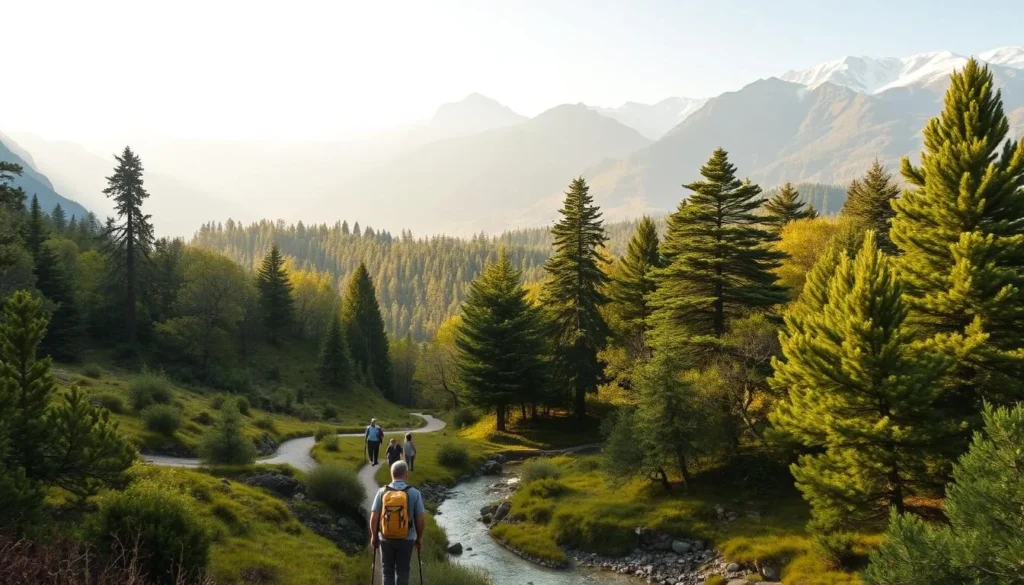
The Significance of the Cedar Tree in Lebanese Heritage
The cedar tree holds a special place in Lebanese heritage, symbolizing eternity, strength, and peace. As a symbol of national pride, the cedar tree is deeply ingrained in Lebanon’s history and culture. The Al Shouf Cedar Nature Reserve protects these majestic trees, some of which are thousands of years old, ensuring their legacy for future generations.
UNESCO Biosphere Reserve Status
The Al-Shouf Cedar Nature Reserve was declared a UNESCO Biosphere Reserve, reflecting its importance in conserving biodiversity and promoting sustainable development. This designation recognizes areas of exceptional ecological, cultural, and scientific significance. The reserve is divided into three interconnected zones: the core area for strict conservation, the buffer zone for limited human activity, and the transition area for sustainable development.
Understanding the significance of this designation is crucial. The UNESCO Biosphere Reserve status highlights the reserve’s role in:
- Promoting sustainable development while preserving critical habitats.
- Fostering scientific research, environmental education, and outreach programs.
- Protecting Lebanon’s natural heritage while allowing for responsible tourism.
Planning Your Visit to Al Shouf Cedar Nature Reserve
As you prepare to explore the natural beauty of Lebanon, planning your visit to Al Shouf Cedar Nature Reserve is essential. This reserve is a significant natural and cultural landmark, offering a unique experience for visitors.
Location and How to Get There
Al Shouf Cedar Nature Reserve is located in the Chouf Mountains of Lebanon. To get there, you can drive from Beirut, which takes approximately an hour and a half. The reserve is well-signposted, making it relatively easy to find. Alternatively, you can join a guided tour or use local transportation services.
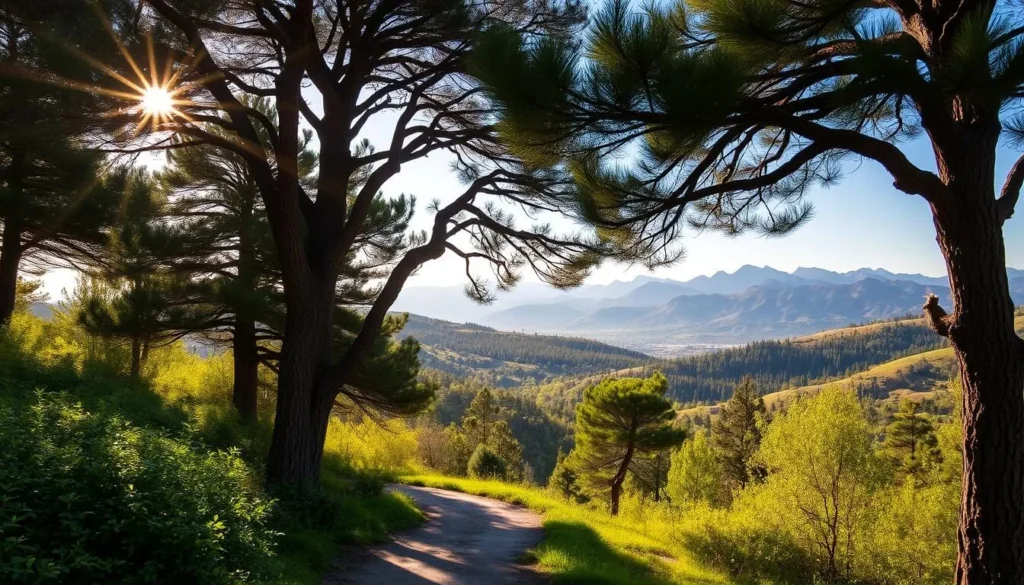
Entrance Fees and Opening Hours
The reserve is open throughout the year, with entrance fees applicable. The fees help in maintaining the reserve’s facilities and conservation efforts. It’s advisable to check the official website or contact the reserve directly for the most up-to-date information on fees and opening hours.
Best Time to Visit
The best time to visit Al Shouf Cedar Nature Reserve varies depending on your preferences. Spring (March to May) is ideal for witnessing vibrant wildflowers and mild weather, perfect for hiking. Summer (June to August) is peak tourist season, with warm weather and long days. Autumn (September to November) offers pleasant temperatures and changing foliage, great for photography. Winter (December to February) brings a serene landscape, occasionally with snowfall, creating a unique experience.
| Season | Characteristics | Activities |
|---|---|---|
| Spring (March to May) | Mild weather, vibrant wildflowers | Hiking, nature photography |
| Summer (June to August) | Warm weather, long days | Hiking, exploring |
| Autumn (September to November) | Pleasant temperatures, changing foliage | Photography, longer hikes |
| Winter (December to February) | Serene landscape, occasional snowfall | Winter activities, serene walks |
Exploring the Ancient Cedar Forests
Exploring the ancient cedar forests of Al Shouf Cedar Nature Reserve is an adventure like no other. The reserve is home to some of the most magnificent cedar forests in the world, where you can witness the majesty of nature up close.
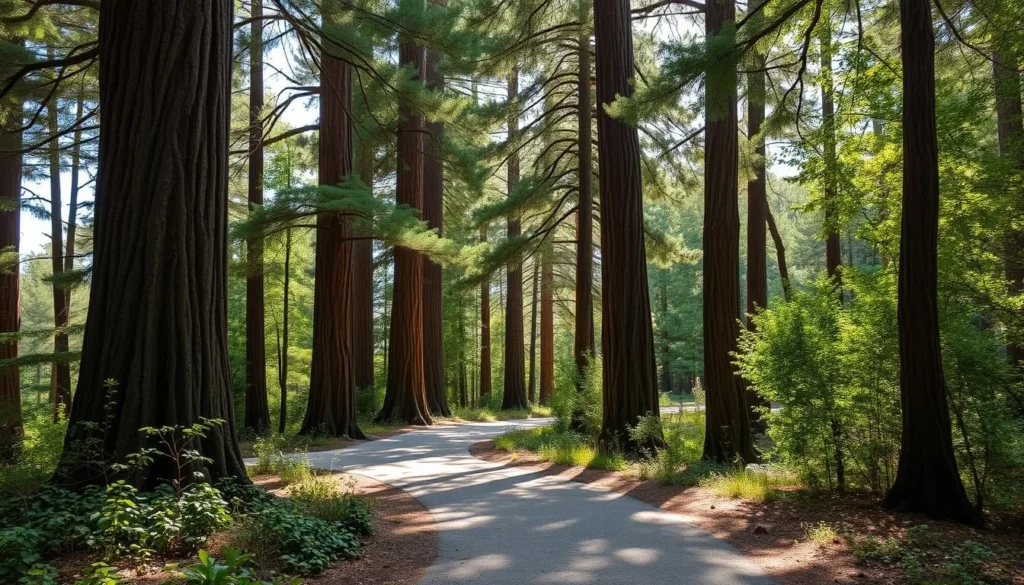
Barouk Cedar Forest: Home to Thousand-Year-Old Giants
The Barouk Cedar Forest is a highlight of the reserve, featuring thousand-year-old cedar giants that stand tall and proud. As you walk through this forest, you’ll be surrounded by the tranquility and the rich history that these trees embody.
The forest is not just a collection of trees; it’s a complex ecosystem that supports a wide range of flora and fauna. The cedar trees here are among the oldest and most impressive you’ll ever see, making this a truly unique experience.
Maasser el Shouf Cedar Forest and the Sacred Grove
In the Maasser el Shouf Cedar Forest, you’ll find the Sacred Grove, a place of spiritual significance and natural beauty. This area is characterized by its dense canopy and the peaceful atmosphere that pervades the grove.
The Sacred Grove is a testament to the conservation efforts within the reserve, showcasing the importance of preserving these ancient forests for future generations. As you explore this grove, you’ll gain a deeper appreciation for the delicate balance of the ecosystem.
Ain Zhalta-Bmohray: A Birdwatcher’s Paradise
Ain Zhalta-Bmohray is renowned for its exceptional birdwatching opportunities. The forest is a habitat for a diverse range of bird species, including both resident and migratory birds, making it a paradise for bird enthusiasts.
- Discover why Ain Zhalta-Bmohray is considered a paradise for birdwatchers, hosting numerous bird species.
- Learn about the specific bird species you might encounter, from raptors to smaller songbirds.
- Understand the unique ecological characteristics that make this forest attractive to diverse bird populations.
- Find out about the best spots and times for birdwatching, and what equipment you should bring.
- Appreciate how this forest contributes to the overall biodiversity and cedar conservation.
Hiking Adventures Through the Reserve
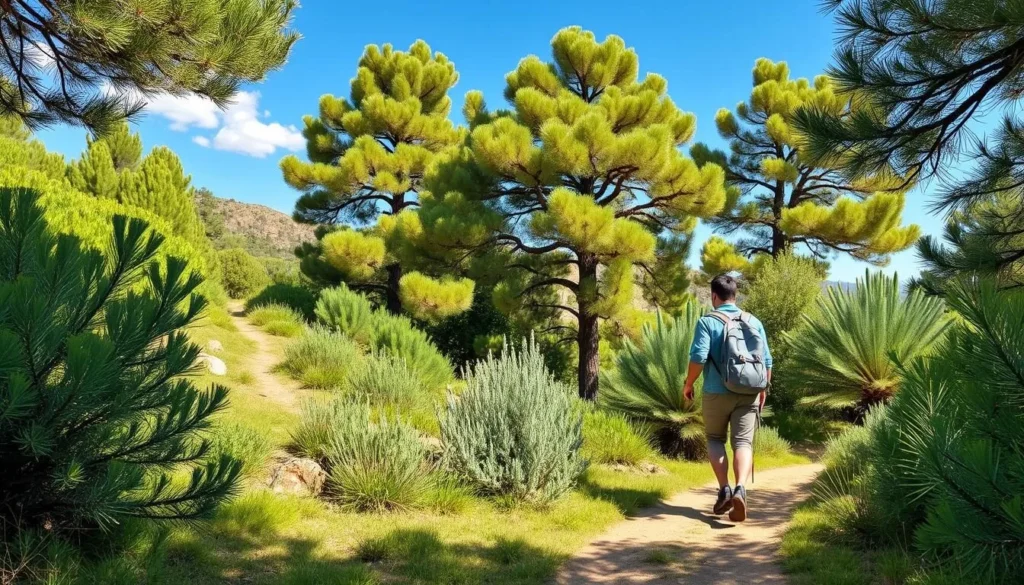
Al Shouf Cedar Nature Reserve is a hiker’s paradise, boasting trails that wind through ancient cedar forests, picturesque valleys, and scenic vistas. The reserve offers a unique opportunity to connect with nature and experience the rich biodiversity of Lebanon.
Popular Hiking Trails for All Skill Levels
The reserve features a variety of hiking trails designed to cater to different skill levels and interests. You can explore the ancient cedar forests, visit historic sites, or simply enjoy the scenic views. The trails range from easy, short walks to more challenging, full-day hikes.
Some of the popular trails include the Barouk Cedar Forest trail, which takes you through a majestic forest of thousand-year-old cedar trees, and the Ain Zhalta-Bmohray trail, known for its birdwatching opportunities.
Guided Tour Options
To enhance your hiking experience, consider opting for a guided tour. Guided tours provide valuable insights into the reserve’s ecology, history, and hidden gems. You can choose from various tour options, including birdwatching tours, botanical walks, and cultural heritage tours.
- Explore the various guided tour options available at Al Shouf Cedar Nature Reserve.
- Learn about the benefits of hiring a local guide, including their in-depth knowledge of the reserve’s ecology and history.
- Discover specialized guided experiences such as photography expeditions and cultural heritage tours.
- Understand the typical costs of guided tours and what’s included in the price.
By choosing a guided tour, you can have a more meaningful and engaging experience in Al Shouf Cedar Nature Reserve. Whether you’re interested in nature, history, or culture, a guided tour can help you make the most of your visit.
Wildlife and Biodiversity in Al Shouf Cedar Nature Reserve
Al Shouf Cedar Nature Reserve is a biodiversity hotspot, featuring a variety of species that are endemic to Lebanon. As you explore the reserve, you’ll discover a rich tapestry of life, from the majestic cedar trees to the diverse wildlife that calls this place home.
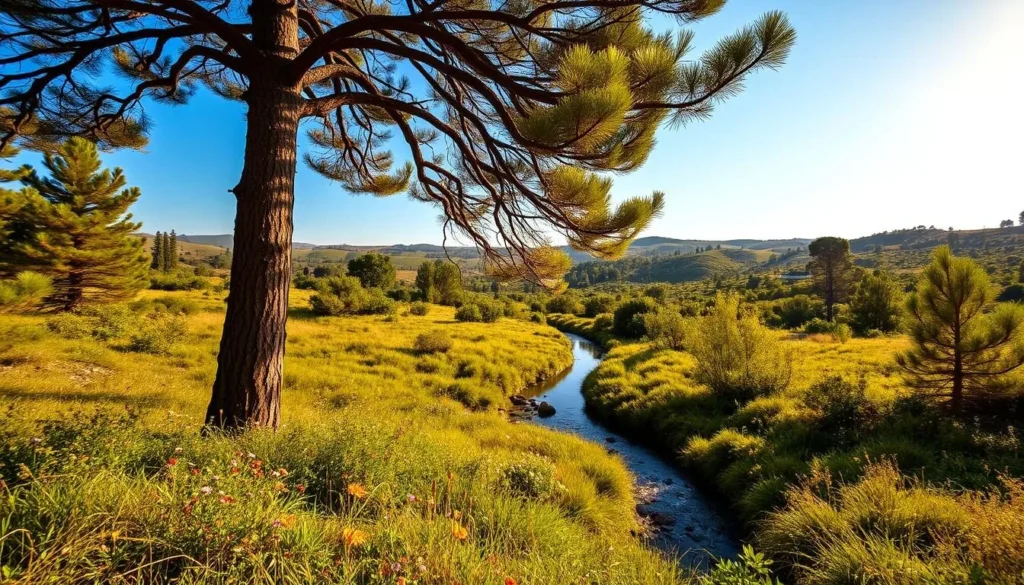
Bird Watching Opportunities
The reserve is a paradise for birdwatchers, with numerous species documented within its boundaries. You can spot birds such as the Syrian woodpecker and the eastern Bonelli’s warbler, among others. The varied habitats within the reserve support a wide range of birdlife, making it an ideal location for ornithological studies and leisurely birdwatching.
Flora and Fauna of the Reserve
Beyond its famous cedar forests, the reserve is home to a diverse array of flora and fauna. The varied elevations and microclimates create distinct ecological zones, each supporting unique assemblages of plants and animals. You can explore oak forests, juniper stands, and vibrant wildflower displays that carpet the reserve in spring.
| Species Type | Examples | Habitat |
|---|---|---|
| Mammals | Wolves, wild boars, rock hyrax | Forests, rocky outcrops |
| Birds | Syrian woodpecker, eastern Bonelli’s warbler | Forests, woodland edges |
| Plants | Cedar, oak, juniper | Forests, mountain slopes |
The Al Shouf Cedar Nature Reserve is a true haven for nature lovers and those interested in wildlife. With its rich biodiversity and varied landscapes, it offers a unique opportunity to experience Lebanon’s natural heritage.
Seasonal Activities in the Reserve
As the seasons change, Al Shouf Cedar Nature Reserve presents unique opportunities for exploration and adventure. The reserve is a dynamic environment where each season brings its own set of activities and experiences.
Spring and Summer Adventures
During the spring and summer months, the reserve comes alive with vibrant flora and fauna. You can enjoy hiking through the lush forests, exploring the diverse wildlife, and taking in the breathtaking views from the many trails. The warmer weather makes it an ideal time for outdoor activities such as bird watching and photography.
Popular activities during this season include:
- Hiking and trail exploration
- Bird watching
- Nature photography
Winter Wonderland Experiences
Winter brings a serene beauty to the reserve, with occasional snowfall transforming the landscape into a winter wonderland. You can experience the magic of snowshoeing through the cedar forests, enjoy winter photography, or try wildlife tracking in the snow. Some trails may be inaccessible during heavy snowfall, so it’s essential to check conditions before heading out.
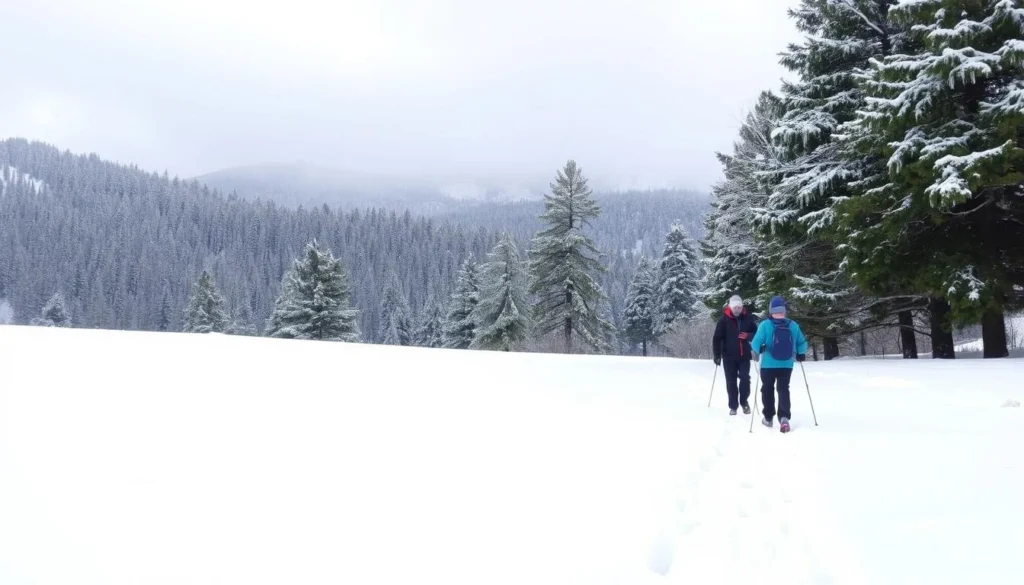
| Season | Activities | Highlights |
|---|---|---|
| Spring/Summer | Hiking, Bird Watching, Photography | Lush flora, diverse wildlife |
| Winter | Snowshoeing, Winter Photography, Wildlife Tracking | Snow-covered landscapes, serene beauty |
The changing season offers a unique experience each time you visit. Whether you’re enjoying the warmth of summer or the tranquility of winter, Al Shouf Cedar Nature Reserve is a destination that caters to all preferences, providing a memorable experience amidst nature.
The Majestic Beiteddine Palace
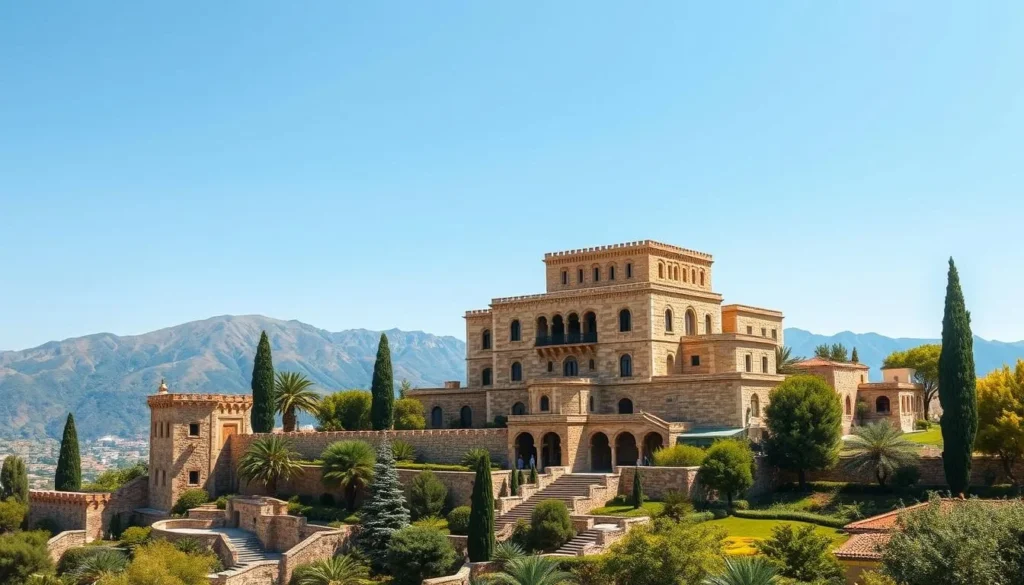
As you step into the Beiteddine Palace, you’re immediately enveloped in an atmosphere of historical grandeur and cultural significance. This magnificent structure, now the Lebanese President’s summer home, is a must-visit destination for anyone interested in history, architecture, and the arts.
Architecture and Historical Significance
The Beiteddine Palace is renowned for its stunning architecture, which reflects a blend of traditional Lebanese and Ottoman styles. The palace’s construction began in the late 18th century under Emir Bashir II, a prominent figure in Lebanese history. Over the years, it has served various purposes, including a military barracks and a prison, before being restored to its former glory. Today, visitors can explore its intricate stone carvings, ornate details, and expansive courtyards, gaining insight into Lebanon’s rich cultural heritage.
The historical significance of Beiteddine Palace is further underscored by its role in preserving and showcasing Lebanese history and culture. Guided tours are available, allowing visitors to delve deeper into the palace’s history and architectural nuances.
The Beiteddine Art Festival
One of the highlights of visiting Beiteddine Palace is the annual Beiteddine Art Festival, a major cultural event in the Middle East that takes place during the summer months. This festival transforms the palace grounds into a vibrant venue for performing events, featuring a diverse range of acts including classical music, contemporary dance, and theater performances.
- Learn about the renowned Beiteddine Art Festival, one of the Middle East’s most prestigious cultural events that transforms the palace grounds each summer into a vibrant venue for performing arts.
- Discover the festival’s rich history and how it has become a cornerstone of Lebanon’s cultural calendar, attracting international and regional performers since its inception.
- Explore the diverse programming of the festival, which typically includes classical music, contemporary dance, theater performances, and exhibitions that showcase both Lebanese and international talent.
Exploring Deir El Qamar: A Journey Through Time
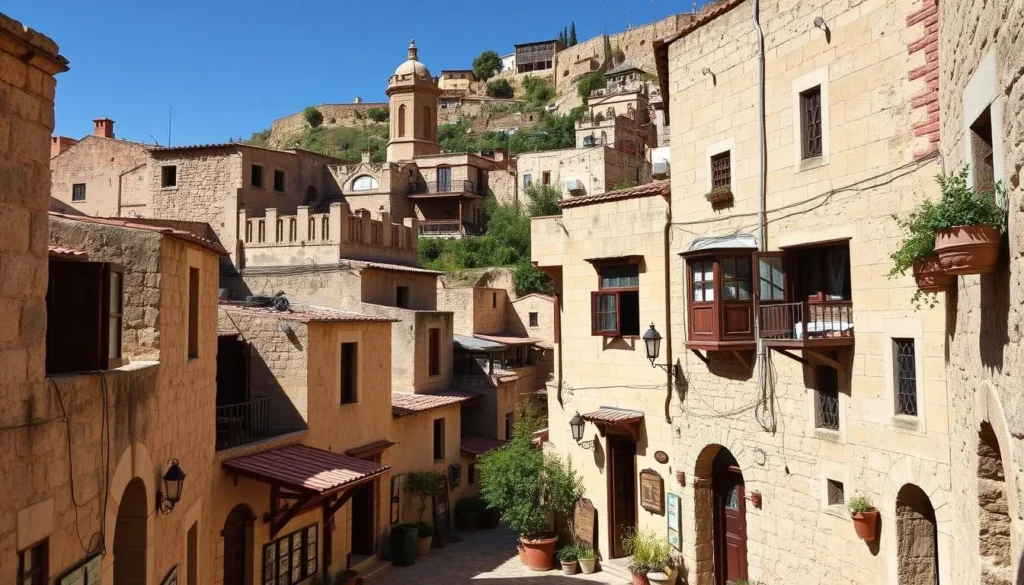
In Deir El Qamar, every stone tells a story, every building whispers secrets of the past, inviting you to explore its timeless charm. This historic village, once a significant political and cultural hub, now stands as a testament to Lebanon’s rich heritage and culture. As you wander through its quaint streets, you’ll discover a remarkably preserved gem that showcases the country’s traditional architecture and historical significance.
Traditional Architecture and Historical Sites
Deir El Qamar’s architecture is a reflection of its historical importance, with buildings that date back to the Ottoman era. The village is home to numerous historical sites, including ancient churches and mosques, which highlight its role as a cultural melting pot. Visitors can explore these sites to gain a deeper understanding of the region’s complex history and its impact on the local culture.
Local Crafts and Souvenirs
The village is renowned for its local artisans who continue to practice traditional crafts, offering a unique experience for visitors. You can explore small workshops and boutiques that showcase authentic Lebanese crafts, such as intricate woodwork, handmade soap, and decorative copperware. Engaging with these artisans not only supports the local economy but also provides insight into Lebanon’s diverse heritage and traditional practices.
By visiting Deir El Qamar, you’re not just exploring a historic village; you’re immersing yourself in a rich cultural tapestry that weaves together history, tradition, and community. It’s an experience that lingers, long after you’ve left this charming village behind.
Unique Attractions Near Al Shouf Cedar Nature Reserve
In the vicinity of Al Shouf Cedar Nature Reserve, a variety of unique experiences await, showcasing the rich heritage and stunning landscapes of Lebanon. The region is replete with attractions that complement a visit to the reserve, offering a more comprehensive understanding and appreciation of the area’s natural beauty and cultural significance.
Moussa Castle: A Dream Built in Stone
Moussa Castle is a remarkable example of Lebanese ingenuity and craftsmanship. Built by Moussa Abdel Karim Al Maamari, this 17th-century style castle took over 60 years to complete and features a unique blend of medieval and local architectural styles. As you explore the castle, you’ll discover intricate stone carvings, ornate details, and a fascinating collection of artifacts that tell the story of its construction and the region’s history.
| Attraction | Description |
|---|---|
| Moussa Castle | A 17th-century style castle with unique architecture and historical significance |
| Atelier Assaf | A cultural center celebrating Lebanese art and culture |
Atelier Assaf: Art and Culture in the Chouf
Atelier Assaf is a cultural center located in the heart of the Chouf region, celebrating Lebanese art and culture. Founded by three sculptor brothers, it combines creativity with sustainability, showcasing the district’s rich heritage. Here, you can explore expansive sculpture gardens featuring impressive outdoor installations by local and international artists, set against the backdrop of the mountain landscapes.
- Wander through the sculpture gardens and discover outdoor installations by local and international artists.
- Visit the indoor gallery spaces that host rotating exhibitions of contemporary Lebanese art.
- Participate in workshops and demonstrations where skilled local artisans teach traditional crafts.
Atelier Assaf is not just an art destination; it’s also a model for environmentally conscious design, harmoniously integrating with the natural beauty of the Chouf region. Your visit here will be a memorable experience, enriching your understanding of Lebanese culture and art.
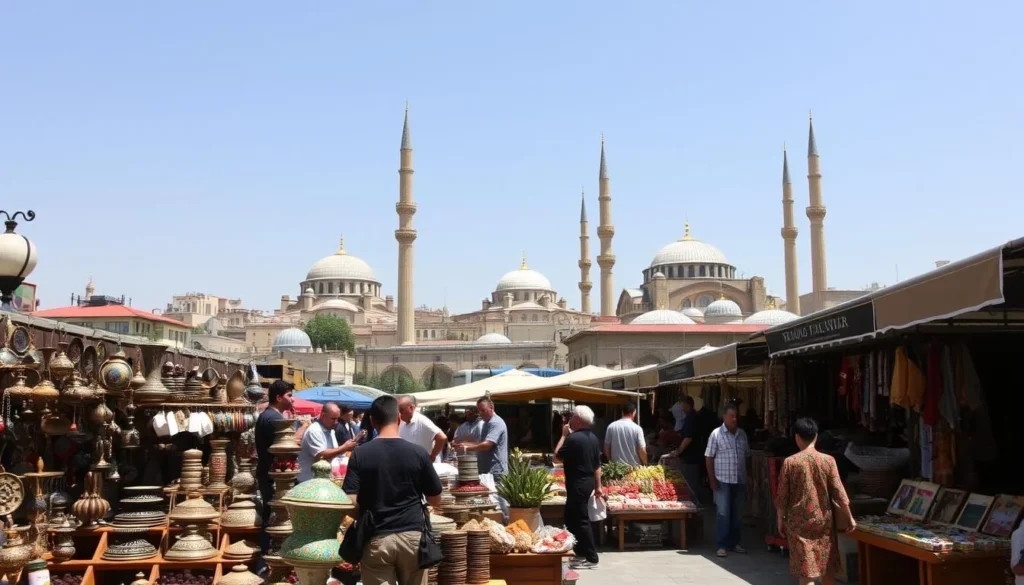
Natural Wonders: Lakes and Waterfalls of the Chouf Region
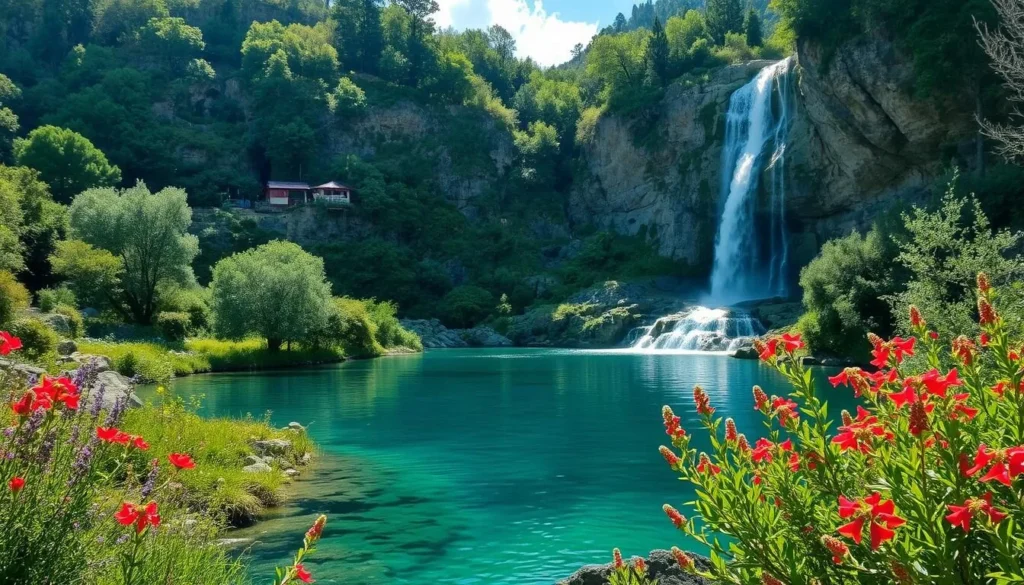
As you explore the Chouf region, you’ll discover an array of stunning lakes and waterfalls that showcase the area’s natural beauty. The region’s diverse landscape creates a perfect setting for these natural wonders, making it a paradise for nature lovers and adventure seekers alike.
Baakline’s Blue Lakes and Waterfalls
Baakline is known for its picturesque blue lakes and waterfalls, which are a result of the region’s unique geology. The lakes’ vibrant blue color is a sight to behold, and the surrounding landscape offers plenty of opportunities for hiking and exploration. Visitors can enjoy a leisurely walk around the lakes or take a more challenging trail to explore the surrounding hills.
Hiking Trails to Hidden Water Features
The Chouf region offers numerous hiking trails that lead to hidden water features, including secluded waterfalls and tranquil streams. One such trail is the Darb El Naher trail in Jahiliye, which rewards hikers with views of a beautiful river system, multiple waterfalls, and historic stone bridges. Another option is the short but rewarding 15-minute hike to Serjbel’s peaceful lake and waterfall.
Whether you’re looking for a leisurely stroll or a more challenging hike, the Chouf region has something to offer. With its diverse nature and picturesque landscapes, this region is a must-visit destination for anyone looking to experience the beauty of Lebanon.
Traditional Lebanese Culinary Experiences

Embark on a gastronomic journey through the Chouf region’s unique culinary traditions. The Al Shouf Cedar Nature Reserve offers a rich culinary experience that reflects the region’s cultural heritage and natural bounty.
Local Restaurants and Dining Options
The Chouf region is home to a variety of local restaurants that serve authentic Lebanese cuisine. You can enjoy a traditional Lebanese breakfast featuring manakish, a flatbread topped with zaatar, cheese, or meat, accompanied by creamy labneh and homemade jams. For a unique dining experience, visit local eateries that offer seasonal dishes made with fresh, locally sourced ingredients.
Regional Specialties to Try
The Chouf region is known for its mountain specialties, including unique preparations of wild herbs and forest mushrooms. Be sure to try some of the local delicacies, such as:
- Sample the essential Lebanese breakfast experience with freshly baked manakish paired with creamy labneh and local honey or homemade jams.
- Discover mountain specialties particular to the Chouf region, including traditional preserved foods.
- Learn about seasonal dishes that showcase the agricultural bounty of the region.
- Explore the sweet side of Lebanese cuisine with traditional desserts like knafeh and maamoul.
- Visit St. Micheal Micro Winery in Maaser El Chouf to taste locally produced wines that reflect the unique terroir of the mountain region.
For wine enthusiasts, St. Micheal Micro Winery is a must-visit destination, offering a range of local wines that complement Lebanese mezze dishes. The winery provides a unique opportunity to experience the region’s culinary culture and traditional food.
Where to Stay: Accommodation Options
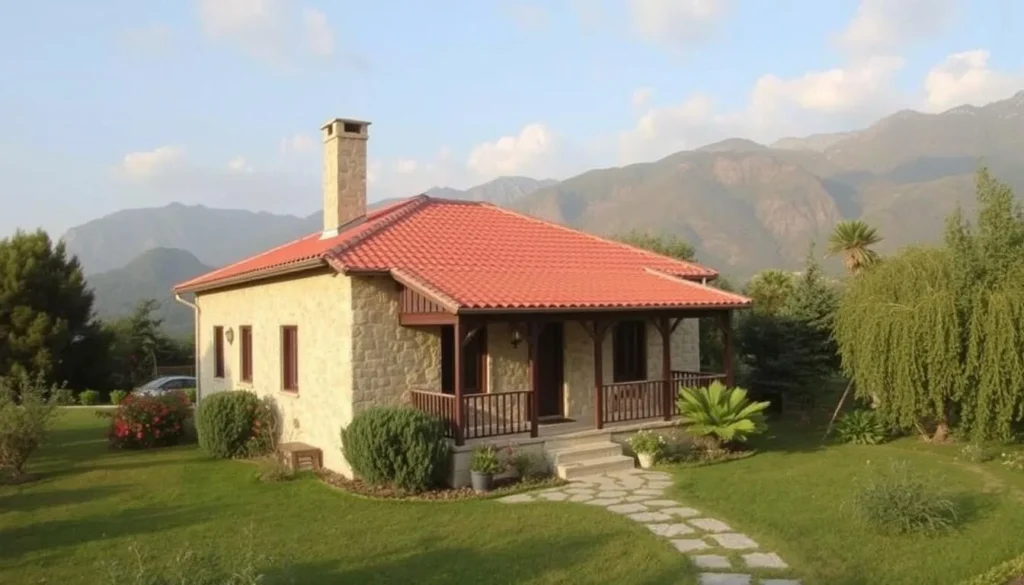
Finding the perfect place to stay near Al Shouf Cedar Nature Reserve can enhance your overall travel experience. The Chouf region offers a variety of accommodation options to suit different travel preferences and budgets.
Guesthouses and Heritage Properties
For a more authentic experience, consider staying in one of the local guesthouses or heritage properties. These charming accommodations provide a glimpse into the region’s history and culture, offering a unique and memorable stay. Many of these guesthouses are located in picturesque villages, allowing you to immerse yourself in the local way of life.
Hotels and Resorts in the Chouf Region
If you prefer more conventional accommodation, the Chouf region has a range of hotels and resorts to choose from. From budget-friendly hotels to luxury resorts, there’s something to suit every traveler’s needs. Many of these establishments are strategically located, providing easy access to Al Shouf Cedar Nature Reserve and other major attractions in the region. When booking, consider the time of year and plan ahead, especially during peak travel seasons.
By choosing the right accommodation, you can make the most of your visit to this beautiful place, enjoying a comfortable stay that complements your exploration of the area’s natural beauty and cultural heritage.
Making the Most of Your Al Shouf Cedar Nature Reserve Experience
Standing at the heart of Lebanese identity, the Al Shouf Cedar Nature Reserve is an experience of a lifetime. To make the most of your time at this precious reserve in the Middle East, plan your visit strategically.
Combine your reserve visit with nearby cultural attractions like Beiteddine Palace and Deir El Qamar for a well-rounded experience of nature and Lebanese heritage. Pack essentials like comfortable shoes and a camera to capture the majestic cedar forests.
By respecting reserve rules and staying on marked trails, you support conservation efforts. Take a moment to truly connect with the ancient trees that have stood for millennia, making your trip to Al Shouf Cedar Nature Reserve a memorable travel experience.
The above is subject to change.
Check back often to TRAVEL.COM for the latest travel tips and deals.
